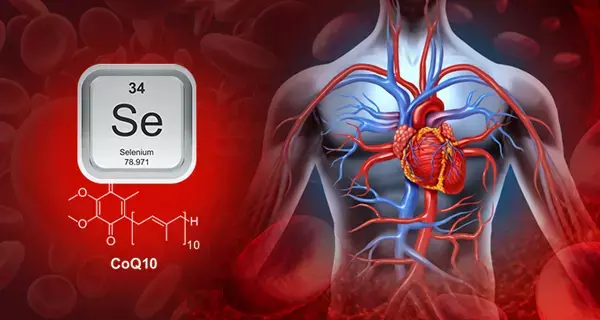- Home
- Medical news & Guidelines
- Anesthesiology
- Cardiology and CTVS
- Critical Care
- Dentistry
- Dermatology
- Diabetes and Endocrinology
- ENT
- Gastroenterology
- Medicine
- Nephrology
- Neurology
- Obstretics-Gynaecology
- Oncology
- Ophthalmology
- Orthopaedics
- Pediatrics-Neonatology
- Psychiatry
- Pulmonology
- Radiology
- Surgery
- Urology
- Laboratory Medicine
- Diet
- Nursing
- Paramedical
- Physiotherapy
- Health news
- Fact Check
- Bone Health Fact Check
- Brain Health Fact Check
- Cancer Related Fact Check
- Child Care Fact Check
- Dental and oral health fact check
- Diabetes and metabolic health fact check
- Diet and Nutrition Fact Check
- Eye and ENT Care Fact Check
- Fitness fact check
- Gut health fact check
- Heart health fact check
- Kidney health fact check
- Medical education fact check
- Men's health fact check
- Respiratory fact check
- Skin and hair care fact check
- Vaccine and Immunization fact check
- Women's health fact check
- AYUSH
- State News
- Andaman and Nicobar Islands
- Andhra Pradesh
- Arunachal Pradesh
- Assam
- Bihar
- Chandigarh
- Chattisgarh
- Dadra and Nagar Haveli
- Daman and Diu
- Delhi
- Goa
- Gujarat
- Haryana
- Himachal Pradesh
- Jammu & Kashmir
- Jharkhand
- Karnataka
- Kerala
- Ladakh
- Lakshadweep
- Madhya Pradesh
- Maharashtra
- Manipur
- Meghalaya
- Mizoram
- Nagaland
- Odisha
- Puducherry
- Punjab
- Rajasthan
- Sikkim
- Tamil Nadu
- Telangana
- Tripura
- Uttar Pradesh
- Uttrakhand
- West Bengal
- Medical Education
- Industry
Higher Dietary Selenium Intake Linked to Reduced Cardiovascular Disease Risk: Study

A new study published in the recent issue of Nature Scientific Reports showed that increased dietary selenium intake is linked to a lower risk of cardiovascular disease (CVD).
About 46% of fatalities globally that are not attributable to non-communicable diseases are caused by cardiovascular disease (CVD), which continues to be the major cause of mortality worldwide. An estimated 85.6 million people in the US alone suffer from some kind of CVD, and the number is rising significantly.
Foods like cereals, nuts, shellfish, red meat, and dairy products, naturally contain selenium (Se), an important vitamin. The enzymatic activities of selenoproteins depend on this trace element, and a lack of selenium hinders cells' and tissues' capacity to make enough of these proteins, which can result in a number of health problems linked to insufficient selenium consumption. It is yet unknown how dietary selenium consumption and CVD are related. As a result, Dan Liang and colleagues set out to look at the connection between dietary selenium consumption and adult CVD risk in the US.
The data from 39,372 individuals in the NHANES 2003–2018 were utilized in this cross-sectional analysis. To investigate the relationship between dietary selenium consumption and CVD risk, this research used restricted cubic splines (RCS) and multivariable logistic regression. To evaluate the impact of different factors, subgroup analysis and interaction tests were also performed, with 39,372 participants in this research.
Across tertiles, the overall prevalence of CVD was 8.57%, and this incidence declined as dietary selenium consumption increased. Tertile 2 of dietary selenium consumption demonstrated a 16% lower risk of CVD in the fully adjusted models.
Subgroup analysis showed that there was no change in the relationship between dietary selenium consumption and the risk of CVD across various statuses. However, the presence of hypertension had a substantial impact on the negative correlation between dietary selenium consumption and the risk of ASCVD.
Consuming selenium through diet may lower the risk of CVD. Additionally, a nonlinear relationship between dietary selenium consumption and the risk of CVD was found.
Overall, this study found a nonlinear correlation between the prevalence of cardiovascular disease in adult Americans and dietary selenium consumption. It suggested that sustaining an ideal dose of selenium would help lower the risk of cardiovascular disease. But going above a specific amount of selenium might have the reverse effect.
Reference:
Liang, D., Liu, C., & Zhang, X. (2025). Association between dietary selenium intake and the risk of cardiovascular disease in US adults: a population-based study. Scientific Reports, 15(1), 13427. https://doi.org/10.1038/s41598-025-97867-7
Dr Prem Aggarwal, (MD Medicine, DNB Medicine, DNB Cardiology) is a Cardiologist by profession and also the Co-founder and Chairman of Medical Dialogues. He focuses on news and perspectives about cardiology, and medicine related developments at Medical Dialogues. He can be reached out at drprem@medicaldialogues.in


